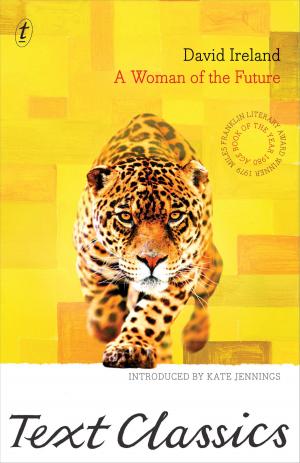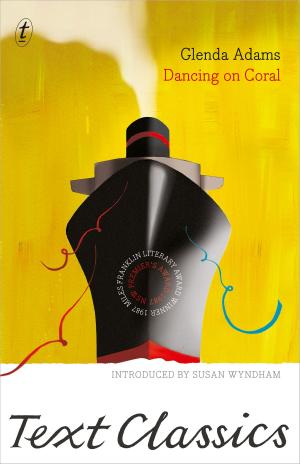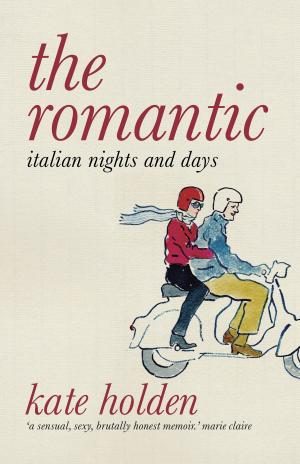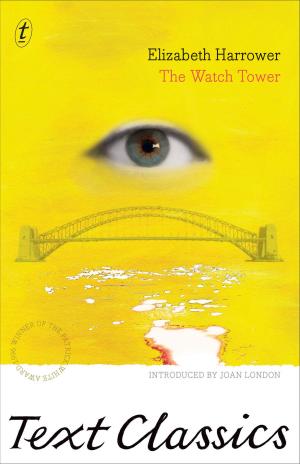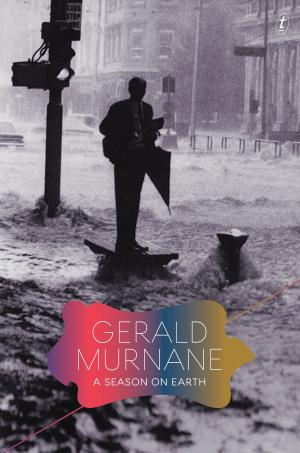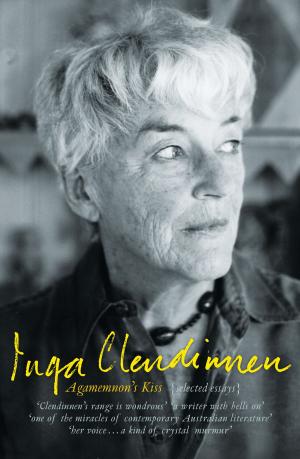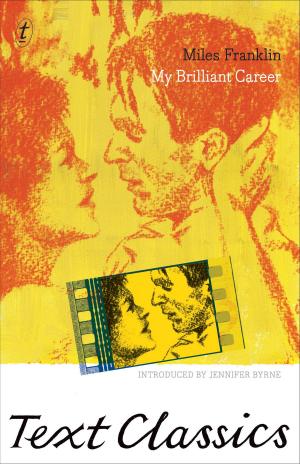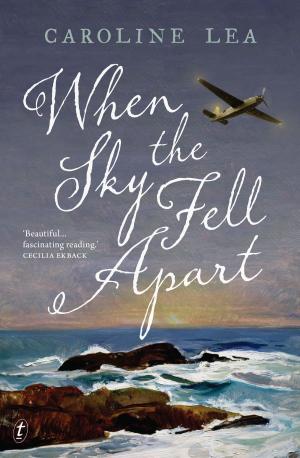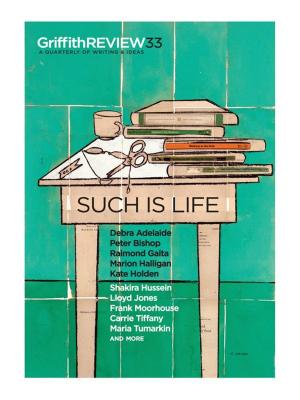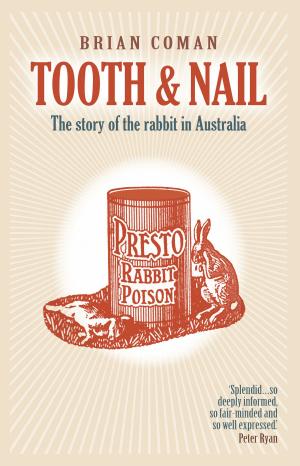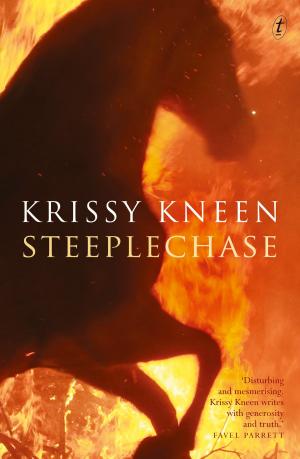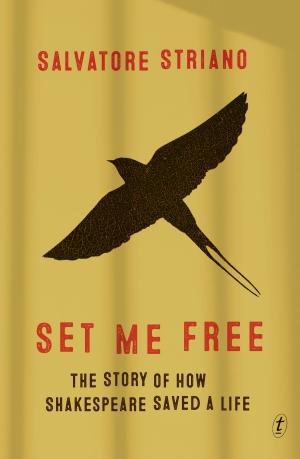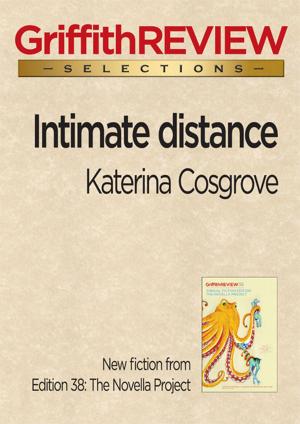| Author: | Patrick White | ISBN: | 9781921961175 |
| Publisher: | The Text Publishing Company | Publication: | August 22, 2012 |
| Imprint: | Text Publishing | Language: | English |
| Author: | Patrick White |
| ISBN: | 9781921961175 |
| Publisher: | The Text Publishing Company |
| Publication: | August 22, 2012 |
| Imprint: | Text Publishing |
| Language: | English |
Patrick White's magnificent debut novel - first published 1939, long out of print and now a Text Classic.
Based on Patrick White's own experiences in the early 1930s as a jackaroo at Bolaro, near Adaminaby in south-eastern New South Wales, Happy Valley paints a portrait of a community in a desolate landscape. It is a jagged and restless study of small-town and country life.
White was twenty-seven when Happy Valley was published by George C. Harrop in London. This mesmerising first novel gives us a prolonged glimpse of literary genius in the making. It won the Australian Literature Society Gold Medal in 1941, but White did not allow the novel to be republished in English in his lifetime. Its appearance now in the Text Classics series is a major literary event.
Happy Valley is the missing piece in the extraordinary jigsaw of White's work.
Patrick White was born in England in 1912 and taken to Australia, where his father owned a sheep farm, when he was six months old. He was educated in England and served in the RAF, before returning to Australia after the war. He was the first Australian to win the Nobel Prize for Literature, in 1973. He died in 1990.
Peter Craven is one of Australia's best-known literary critics. He was founding editor of Scripsi, Quarterly Essay and the Best of anthologies.
'[Patrick White] was a prophet, and from his sublime mountaintop, he sent down lightning bolts on our callow heads. Some of these bolts are vivid in Happy Valley, his first novel, published in 1939 and now reissued...The novel stands up well in the high company of its later brethren. It prefigures the greatness to come, and is a more adventurously wrought than many of our own age. White is a mesmerising narrator whose prose illuminates the most ordinary object and event in new and gripping ways.' Thomas Keneally, Guardian
'Happy Valley will be a joy for any fan. Here we see a sensibility not so much forming as finding, and owning, itself.' Weekend Australian
'This is a remarkable first novel, already discernible as the performance of a master whose apprentice work cannot be glimpsed. We are fortunate indeed that Text has reopened the front door in the house of Patrick White's fiction.' Canberra Times
'My favourite Australian novel was by a newcomer - well, a newcomer in 1939. A sardonic, grotesque, oddly moving ensemble of piece about thwarted lives in a dismal country town, Happy Valley presages the later Patrick White, but is also refreshingly original and feels as contemporary as the latest bestseller.' Jane Sullivan, Australian Book Review
'Happy Valley is a harsh and unsparing picture of a prematurely exhausting, life-denying Australia. It's a world full of violence, adultery and financial ruin, in which nothing will ever change. White's main focus, as in his great later novels, is the thwarted spiritual yearning of his characters. But this is also a superb anatomy of Australian society.' Metro (NZ)
Patrick White's magnificent debut novel - first published 1939, long out of print and now a Text Classic.
Based on Patrick White's own experiences in the early 1930s as a jackaroo at Bolaro, near Adaminaby in south-eastern New South Wales, Happy Valley paints a portrait of a community in a desolate landscape. It is a jagged and restless study of small-town and country life.
White was twenty-seven when Happy Valley was published by George C. Harrop in London. This mesmerising first novel gives us a prolonged glimpse of literary genius in the making. It won the Australian Literature Society Gold Medal in 1941, but White did not allow the novel to be republished in English in his lifetime. Its appearance now in the Text Classics series is a major literary event.
Happy Valley is the missing piece in the extraordinary jigsaw of White's work.
Patrick White was born in England in 1912 and taken to Australia, where his father owned a sheep farm, when he was six months old. He was educated in England and served in the RAF, before returning to Australia after the war. He was the first Australian to win the Nobel Prize for Literature, in 1973. He died in 1990.
Peter Craven is one of Australia's best-known literary critics. He was founding editor of Scripsi, Quarterly Essay and the Best of anthologies.
'[Patrick White] was a prophet, and from his sublime mountaintop, he sent down lightning bolts on our callow heads. Some of these bolts are vivid in Happy Valley, his first novel, published in 1939 and now reissued...The novel stands up well in the high company of its later brethren. It prefigures the greatness to come, and is a more adventurously wrought than many of our own age. White is a mesmerising narrator whose prose illuminates the most ordinary object and event in new and gripping ways.' Thomas Keneally, Guardian
'Happy Valley will be a joy for any fan. Here we see a sensibility not so much forming as finding, and owning, itself.' Weekend Australian
'This is a remarkable first novel, already discernible as the performance of a master whose apprentice work cannot be glimpsed. We are fortunate indeed that Text has reopened the front door in the house of Patrick White's fiction.' Canberra Times
'My favourite Australian novel was by a newcomer - well, a newcomer in 1939. A sardonic, grotesque, oddly moving ensemble of piece about thwarted lives in a dismal country town, Happy Valley presages the later Patrick White, but is also refreshingly original and feels as contemporary as the latest bestseller.' Jane Sullivan, Australian Book Review
'Happy Valley is a harsh and unsparing picture of a prematurely exhausting, life-denying Australia. It's a world full of violence, adultery and financial ruin, in which nothing will ever change. White's main focus, as in his great later novels, is the thwarted spiritual yearning of his characters. But this is also a superb anatomy of Australian society.' Metro (NZ)

